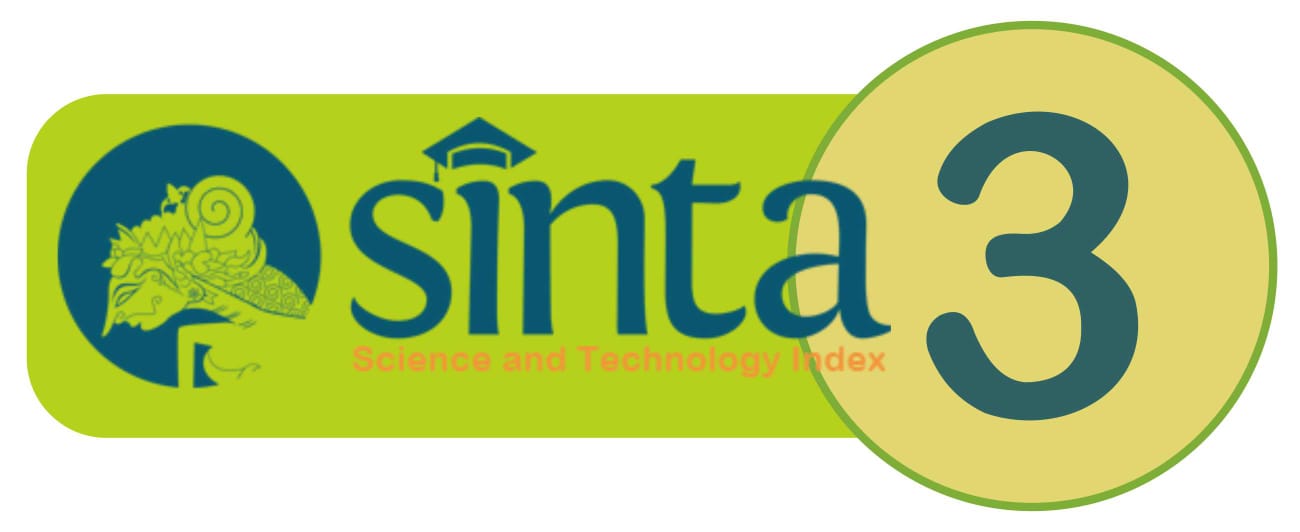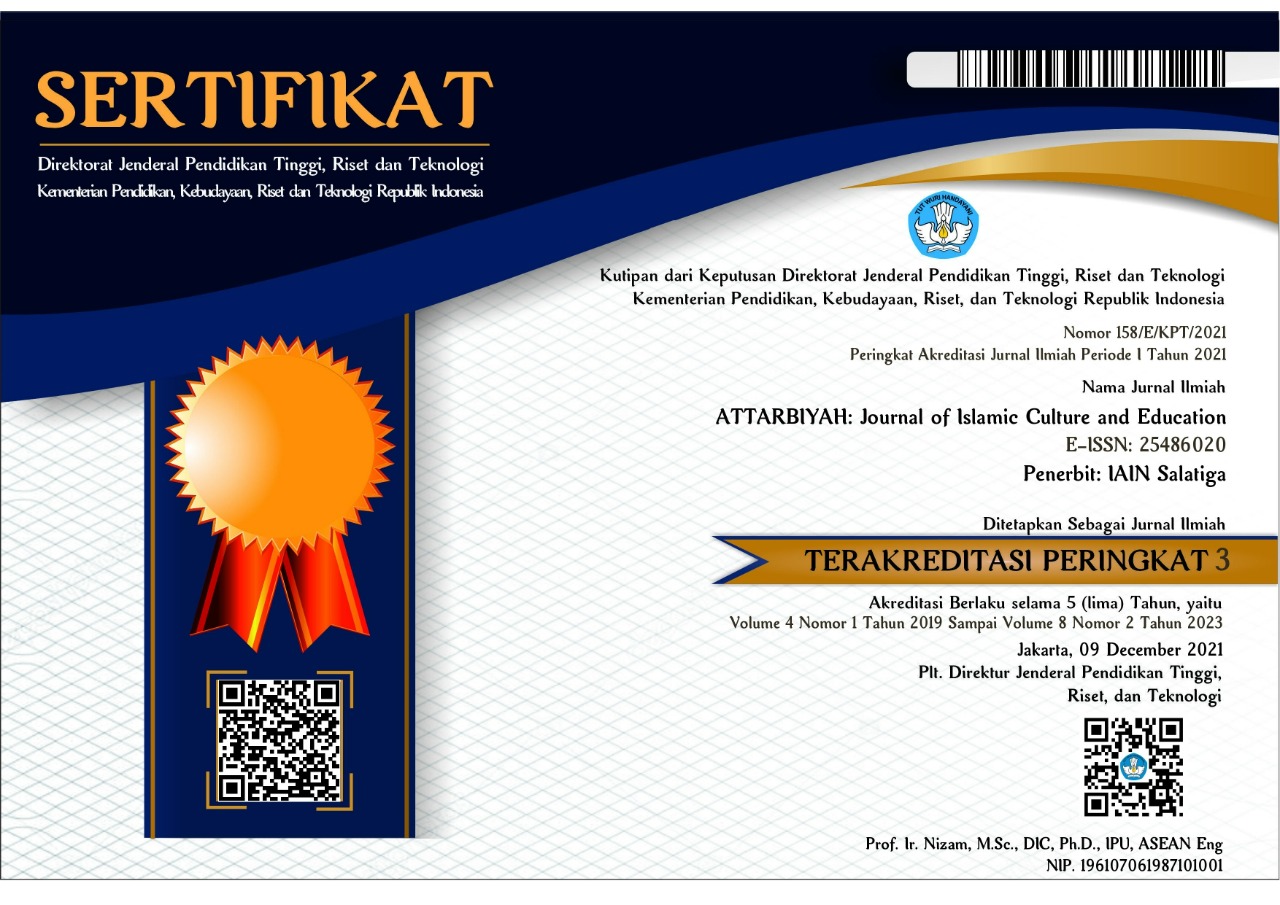Contribution of moral Sufism learning to Adversity Quotient
Abstract
teaching of Sufism contributed to the adversity quotient of IAIN Salatiga students evidenced by the formation of attitudes and behavior optimistic, confident, capable heartened, able to withstand reproach, aspire big,
accept criticism and able to hit the target.
Keywords
Full Text:
PDFReferences
Assegaf, Abdurrahman. (2011). Filsafat Pendidikan Islam. Paradigma Baru Pendidikan Hadhari Berbasis Integratif-Interkonektif. Jakarta: Raja Grafindo Persada,.
Bahtiar Amsal. (1997). Filsafat Agama. Jakarta: Logis Wacana Ilmu
Fatmawati, Sri dkk. (2015). Desain Laboraturium Skala Mini untuk Pembelajaran Sain Terpadu. Yogyakarta: Deepublish.
Ginanjar, Ari. (2011). Emotional Spiritual Quotient; The ESQ Way. jilid 1, Jakarta: Arga Tilanta.
Kompri. (2015). Motivasi Pembelajaran. Bandung: Remaja Rosdakarya.
Kurnia, Ikhsan dan Dania, Eva. (2017). Transcendental Adversity Management. Yogyakarta: Pustaka Ilmu.
Lefudin. (2017). Belajar dan Pembelajaran. Yogyakarta: Deepublish.
Muttaqiyathun, Ani, “Hubungan Emotional Quotient, Intelectual Quotient dan Spiritual Quotient dengan Entrepreneur’s Performance”, Managemen Bisnis, vol. 2, no. 3 ( 2009- 2010): 221-234
Nata, Abudin. Akhlak Tasawuf. (1997). Jakarta: Raja Grafindo Persada.
Stoltz, Paul G. (1997). Adversity Quotient: Turning Obstacles into Opportunities. Canada: John Wiley & Sons INC, 1997.
Stoltz, Paul G. (2000). Adversity Quotient: Mengubah Hambatan Menjadi Peluang. Terjemahan T. Hermaya. Jakarta: PT Grasindo.
Sugiyono. (2013). Metode Penelitian Pendidikan, Pendekatan Kuantitatif, Kualitatif, dan R&D, Bandung: Alfabeta.
Sultoni, Ahmad. (2007). Sang Maha-Segalanya Mencintai Sang Maha Siswa. Salatiga: STAIN Salatiga Press.
Sutrisno Hadi. (2000). Metodologi Research. Yogyakarta: Andi Offset.
Yoga, Miarti. (2016). Adversity Quotient. Solo: Tinta Medina.
DOI: https://doi.org/10.18326/attarbiyah.v3i1.46-64
Refbacks
- There are currently no refbacks.

ATTARBIYAH: Journal of Islamic Culture and Education by http://attarbiyah.iainsalatiga.ac.id/ is licensed under a Creative Commons Attribution-ShareAlike 4.0 International License
----------------------------------------------------------
ATTARBIYAH : Journal of Islamic Culture and Education IAIN SALATIGA p-ISSN: 0215-9996, e-ISSN: 2548-6020



